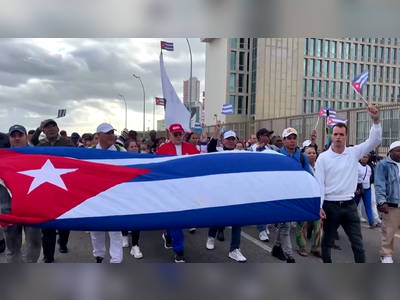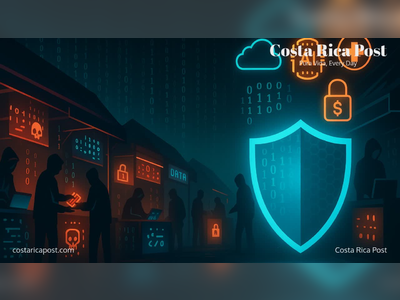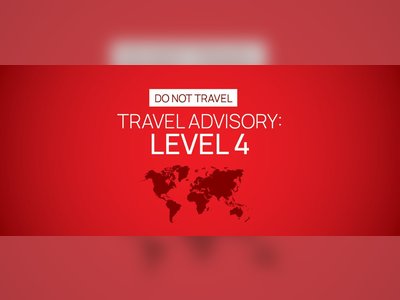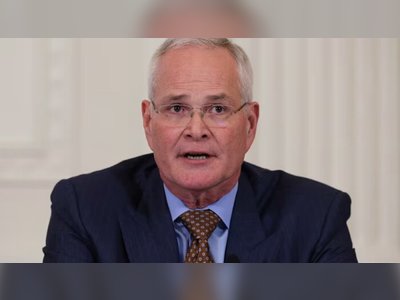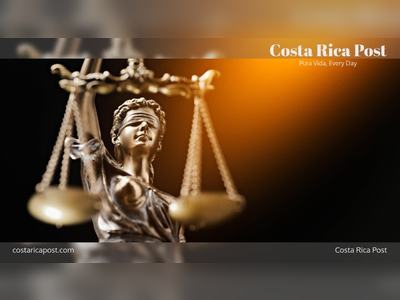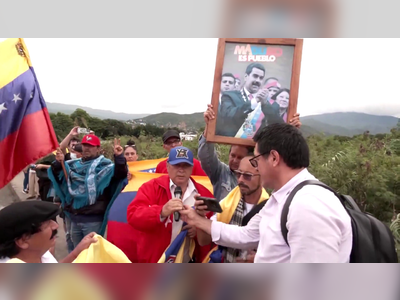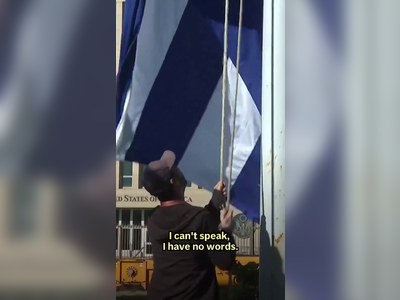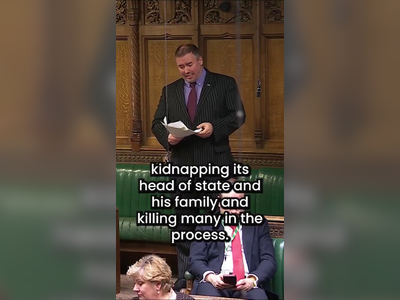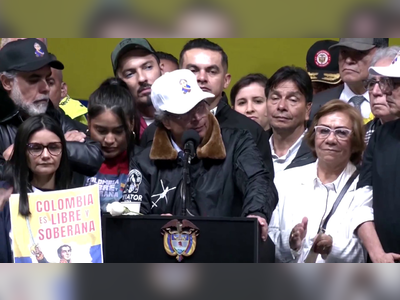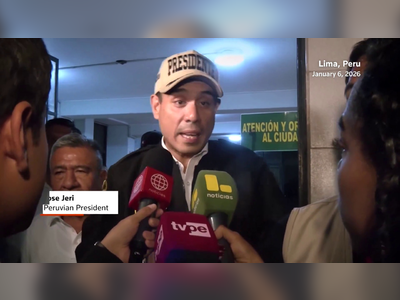Costa Rica's Subsidized Fuel: A Trojan Horse for Illicit Activities
Audit reveals critical vulnerabilities in oversight, risking legal loopholes for subsidized fuel to aid criminal activities
In a revelatory report, Costa Rica's Comptroller General has unveiled alarming potential for misusing subsidized fuel allocated to the national fishing fleet.
The audit, targeting the period between January 1, 2023, and April 30, 2024, scrutinized the distribution of 40 million liters of fuel to 1,393 beneficiaries, highlighting opaque regulatory practices and insufficient oversight by the Costa Rican Institute of Fishing and Aquaculture (Incopesca).
During the audit, stunning discrepancies emerged, underscoring the inadequate inspection mechanisms—called ‘weak and infrequent’ by the report.
Beneficiaries' accounts sometimes reflect tens of thousands of liters unclaimed, with some discrepancies reaching a staggering 72,341 liters.
Such disparities suggest potential mismanagement or worse, deliberate allocations toward undocumented uses.
Seizing attention, around 57% of the processes audited manifested deficiencies in documentation related both to applicants and intermediary organizations.
These included expired agreements, unsigned authorization cards, and documentation submitted by unauthorized individuals, coupled with a lack of rigorous verification practices by Incopesca.
Traditionally, Incopesca exempts commercial and touristic fishing licensees from paying diesel and gasoline taxes.
Yet, this exemption balloons into a remarkable cost for the state, averaging approximately ¢7.667 billion annually—comparable to the budget of several municipalities for 2024.
A particularly striking finding featured inconsistencies in fuel allocation for vessels with similar engine capacities, both set for identical fishing durations.
One vessel received an allocation three times the amount dispensed to another: 19,327 liters against a mere 6,875.
Incopesca’s argument—that factors like species to be caught and environmental conditions necessitate flexible allotments—was deemed unsupported by existing regulations.
The lack of involvement in monitoring the final prices paid by beneficiaries signals another critical oversight by Incopesca, diverting from the principles enshrined in their regulatory framework—prohibiting assurance of a tangible economic benefit from the subsidies granted.
The wider implications of these deficiencies come into focus upon realizing that fuel subsidies, reaching upwards of ¢71,562 million over nine years, may have indirectly facilitated activities veering into the underbelly of criminal exploits.
Revelations emphasized by La Nación newspaper point to entities connected to drug trafficking and fuel theft exploiting these loopholes.
Prominent figures such as Gilbert Bell Fernández, labeled by U.S. authorities as a notorious drug trafficker, reportedly capitalized on these subsidies to save ¢521.4 million.
Furthermore, in the context of judicial interventions, the 'Ballena Case' involving prominent fishing entrepreneurs accused of money laundering and narcotics distribution linked their businesses to over ¢1.185 billion in savings from fuel subsidies.
Incopesca's inspection regime faces serious critique: out of 28 planned inspections in 2023 specifically targeting storage, only 10 materialized, as the overall inspection framework crumbled under resource constraints both financial and human.
This audit lays bare a pressing conundrum: intersecting societal needs and regulatory ethics, highlighting the existential task of reforming subsidy frameworks to safeguard public funds and dismantle gateway aberrations nurturing illicit enterprises.
The path ahead mandates a recalibrated enforcement strategy fortified with robust oversight and an unequivocal accountability structure, to curtail potential exploitations marring Costa Rica's socioeconomic fabric.
The audit, targeting the period between January 1, 2023, and April 30, 2024, scrutinized the distribution of 40 million liters of fuel to 1,393 beneficiaries, highlighting opaque regulatory practices and insufficient oversight by the Costa Rican Institute of Fishing and Aquaculture (Incopesca).
During the audit, stunning discrepancies emerged, underscoring the inadequate inspection mechanisms—called ‘weak and infrequent’ by the report.
Beneficiaries' accounts sometimes reflect tens of thousands of liters unclaimed, with some discrepancies reaching a staggering 72,341 liters.
Such disparities suggest potential mismanagement or worse, deliberate allocations toward undocumented uses.
Seizing attention, around 57% of the processes audited manifested deficiencies in documentation related both to applicants and intermediary organizations.
These included expired agreements, unsigned authorization cards, and documentation submitted by unauthorized individuals, coupled with a lack of rigorous verification practices by Incopesca.
Traditionally, Incopesca exempts commercial and touristic fishing licensees from paying diesel and gasoline taxes.
Yet, this exemption balloons into a remarkable cost for the state, averaging approximately ¢7.667 billion annually—comparable to the budget of several municipalities for 2024.
A particularly striking finding featured inconsistencies in fuel allocation for vessels with similar engine capacities, both set for identical fishing durations.
One vessel received an allocation three times the amount dispensed to another: 19,327 liters against a mere 6,875.
Incopesca’s argument—that factors like species to be caught and environmental conditions necessitate flexible allotments—was deemed unsupported by existing regulations.
The lack of involvement in monitoring the final prices paid by beneficiaries signals another critical oversight by Incopesca, diverting from the principles enshrined in their regulatory framework—prohibiting assurance of a tangible economic benefit from the subsidies granted.
The wider implications of these deficiencies come into focus upon realizing that fuel subsidies, reaching upwards of ¢71,562 million over nine years, may have indirectly facilitated activities veering into the underbelly of criminal exploits.
Revelations emphasized by La Nación newspaper point to entities connected to drug trafficking and fuel theft exploiting these loopholes.
Prominent figures such as Gilbert Bell Fernández, labeled by U.S. authorities as a notorious drug trafficker, reportedly capitalized on these subsidies to save ¢521.4 million.
Furthermore, in the context of judicial interventions, the 'Ballena Case' involving prominent fishing entrepreneurs accused of money laundering and narcotics distribution linked their businesses to over ¢1.185 billion in savings from fuel subsidies.
Incopesca's inspection regime faces serious critique: out of 28 planned inspections in 2023 specifically targeting storage, only 10 materialized, as the overall inspection framework crumbled under resource constraints both financial and human.
This audit lays bare a pressing conundrum: intersecting societal needs and regulatory ethics, highlighting the existential task of reforming subsidy frameworks to safeguard public funds and dismantle gateway aberrations nurturing illicit enterprises.
The path ahead mandates a recalibrated enforcement strategy fortified with robust oversight and an unequivocal accountability structure, to curtail potential exploitations marring Costa Rica's socioeconomic fabric.

